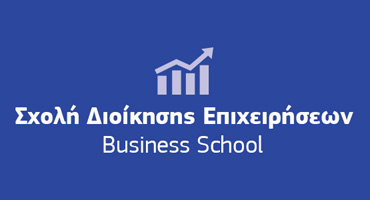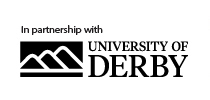

Business School
- BA (Hons) Marketing, PR & Advertising
- BSc (Hons) Economics & Finance
- BA (Hons) Business Management (Marketing)
- BA (Hons) Business Management (Finance)
- BA (Hons) Business Management
- BA (Hons) Business Management (Human Resource Management)
- BA (Hons) Business Management (Supply Chain & Logistics)




BSc (Hons) Economics & Finance
-
Unique combination of Economics with Finance.
-
TOP10 in the UK for Economics.
-
Professionally accredited content: CISI, CIMA.
-
Expert teaching: Greek University professors & practitioners.

Course Information
With professional accreditation and strong input from employers, this degree equips you to undertake economic research and analysis, handle complex financial data sources, diagnose problems and take the strategic decisions expected of an applied economist.
Because the course is accredited by the Chartered Institution for Securities and Investment (CISI), it will stand you in good stead for achieving a globally recognised professional qualification alongside your degree. On successful completion of the degree you will also gain exemptions towards the Chartered Institute of Management Accountants (CIMA) qualifications, meaning you can achieve membership of this professional body quicker, accelerating your career progression.
What you will study
Your studies will cover a broad range of microeconomic and macroeconomic issues, quantitative methods, computing techniques and business performance concepts. We also give you a solid understanding of how various economic systems work, the impact of government policies and the performance of different economies worldwide.
During the course, you will have access to real financial market data, you will conduct live consultancy projects and you’ll have the opportunity for internship at one of our partner organisations.
Why choose this course
- One of a few courses in Greece to combine Economics with Finance.
- The degree is awarded by the University of Derby, a TOP10 UK University for Economics (Student Satisfaction & Teaching Quality - Complete University Guide & Times University Guide 2022).
- It is highly applied, with content accredited by leading professional bodies: Chartered Institution for Securities and Investment (CISI), Chartered Institute of Management Accountants (CIMA).
- You will be taught by prominent, well-published University professors, who comprise the course’s advisory board.
- You will conduct a consultancy project in one of our partner organisations and you will have access to real financial market data.
- You will become a bilingual Economist, with exceptional academic and career prospects.
The BSc (Hons) Economics & Finance is a highly practical applied degree. Every day brings a fresh challenge to broaden your professional outlook. You may find yourself analysing news reports, creating strategy documents, interpreting financial reports, undertaking research tasks, harnessing latest software, delivering presentations, videos and broadcast interviews, tracking your own portfolio of investments, or analysing information from Bloomberg on international markets and organisations.
Employers are closely involved in shaping our degree. They provide real-world case studies, practical scenarios and consultancy projects which will enhance the currency of your studies.
Courses
Year 1
Finance & Business Performance
This module will assume no prior accounting knowledge. You will learn how to prepare accounts for small businesses and then apply that knowledge to larger organisations.
Academic & Digital Skills for Professionals
This module will equip you with the key written communication skills necessary for both your future academic and future professional career. It will enable you to develop your skills of writing both clearly, coherently and succinctly, in such a way that you effectively address the information needs of the user of the document.
Introductory Microeconomics
This module explores how markets work and how firms develop pricing strategies from an economic perspective. All students of business and management need to consider the external market context in which business and management decisions are made.
Introduction to Macroeconomic Concepts & Data
The aim of this module is to give you a better understanding of how the economy of a country works a whole. The module will present you the main issues of the business macroeconomic environment – recessions and expansions, economic growth, inflation and unemployment.
Introductory Quantitative Analysis
The aim of this module is to combine basic economic theory and mathematical techniques. You will be provided with an introduction to the basic tools of mathematics which is needed to help you understand economic theory. The quantitative methods introduced will be integrated to a number of applications to economics. This module will provide you with a valuable theoretical and practical understanding, where you will learn how to apply the methods introduced to business and economic related issues. The topics taught will help you develop your quantitative skills and your ability to analyse data. Such quantitative and analytical skills are an integral part of decision making in business.
Market Failure Analysis
This module introduces you to the economic theory of market failure and its central role in modern economic analysis of consumer choice, business activity, market activity, efficiency and industry development.
English I
Year 2
Current Debates in Applied Economic Theory
In this module, we respond to the increased interest in understanding the recent dramatic economic events. Recent surveys and conferences on the state of the economics discipline and the employability of economics graduates have highlighted the gaps identified by employers in knowledge of economic history and applied economics skills (Bank of England, 2012; Government Economic Service, 2012).
Industrial Economics
Organisation of markets, firms and industries play a key role in determining their performance. Consequently, it results convenient analysing it from both a theoretical and applied perspective. This module aims to provide the student with an insight into pricing strategies, market concentration, market performance, strategies of firms including multinational enterprises (MNEs), and Public Policies. These elements will be appraised in a globalised context. This module provides quantitative analytical skills to students.
Applied Intermediate Macroeconomics
This module aims to enable you to use macroeconomic theory and data to make sense of the economic world around us and develop your own informed opinion on the issues of the day. In this module you will focus your efforts on applying economic theory to real-world data, policies and current events.
Data Analysis
This module aims to ensure you have a good understanding of how to use Excel and SPSS as software for economic analysis for business. You will develop the basic skills in primary data generation, sampling, data extraction, manipulation and presentation, essential for any business economist. You will also develop your skills in using parametric and non-parametric tests widely used in economic business data analysis for cross-section and time series analysis.
Financial Markets & Instruments
This module gives you a thorough introduction to the nature of international financial markets and the array of financial instruments available to investors as well as firms. You will gain an understanding of asset pricing, arbitration and speculation in financial markets, and the impact of macroeconomic policies and international factors on financial markets.
Corporate Finance
Organisations face a number of financial problems over the lifetime of their business. This module will help you develop your knowledge in this area.
English II
Year 3
Investing & Financial Market Behaviour
This module brings together major themes from economics, finance and psychology in order to develop your awareness of financial markets issues and to expand your understanding of investment decision making, investor behaviour, regulation and financial markets in crisis.
Financial Risk Management
This module introduces the methods that organisations can use to manage the risks of trading in global markets. All types of organisations need to manage the risk of adverse movements in exchange rates and interest rates. A good international strategy must include financial risk management. The extent to which an organisation can reduce risk depends upon its strategy and the availability of suitable products from the banking and financial markets. Students will learn about risk and risk management products and strategies. The distinctive nature of this module is the development of practical skills in building a strategy to manage risk.
Econometrics
This module aims to develop the skills you will need to interpret quantitative analysis in academic journals in economics, business and finance. It also enables you to undertake empirical research using computational techniques to analyse and interpret numerical findings. The module will review descriptive statistics and simple regression and introduce econometric techniques for analysing cross-sectional, panel and time-series data. This module will introduce you to appropriate software for econometric analysis using real data.
Corporate Governance
The corporate governance module looks at the framework of rules underpinning the relationships between corporations, their stakeholders, the government and the society at large. The subject’s multidisciplinary nature is quite evident – you will cover concepts in law, politics and ethics as well as in economics, finance and management.
Applied Economics Project
This module is delivered in two semesters (Autumn and Spring). It is designed to build upon your existing knowledge of economic perspectives, basic statistics, data collection and analysis to enable you to undertake a small scale economic research project. This is a critical skill for any economist working in business consultancy. You will be introduced to real-world economic analysts, examine what they do, what type of research projects they are involved in and what analysis they produce and how they communicate it to clients.
Admission Requirements
This course is ideal for you, if you are a high school graduate of any discipline with the necessary English language skills, who aspires to build a career in Finance or start your own business.
The minimum English language requirement for the bilingual course (Greek and English) is equivalent to IELTS 4.5 (B1) and for the English-taught course is equivalent to IELTS 6.0 (B2). If you do not possess an official English language certificate, you can sit the College’s internal placement test.
Moreover, you’ll be asked to submit a reference letter from a tutor, and you’ll be called for an academic interview with the programme leader.
If you are a holder of an HND diploma or a University or College student in a relevant discipline, you may be granted exception in terms of academic years required to complete the course as your prior academic credentials will be recognized.
Application & Enrolment
We use a rolling admissions policy, so we accept applications throughout the calendar year until all available places are filled. In order to secure your place in your selected course and class, we urge you to submit your application in time.
We also offer multiple fee payment methods, individual payment plans and bursaries based on academic, athletic and socio-economic criteria.
Contact us today and find out more about this course and the available bursaries and funding opportunities. Our admissions advisors will provide you with all necessary information and will guide you through the application and enrolment process.
Degree recognition
Your degree is recognised in Greece as professionally equivalent to degrees awarded by Greek state universities. It is also recognised by the UK NARIC as academic and professionally equivalent to any UK degree.
Click here for more information on the degree recognition procedure by Greek authorities.
Postgraduate study
An Economics & Finance degree allows you to choose among a great variety of postgraduate or professional courses. At Mediterranean College you can study towards:
- ΜΒΑ Global
- MBA Global Finance
- MBA Global Shipping
- MBA Global Hospitality
- MSc Marketing Management
- MSc Human Resources Management
- MSc International Hospitality Management
- MSc Big Data Analytics
Alternatively, you can opt for an accredited CPD course at Mediterranean Professional Studies:
- Digital & Social Media Marketing
- Leadership & Human Resources Management
- Marketing & Sales Management
- Global Operations & Logistics
- Shipping
- Hotel & Tourism Management
- Healthcare Management
- Sports Management
Career prospects
As a BSc (Hons) Economics and Finance graduate, you will have a powerful combination of applied skills which are valued across the public, private and voluntary sectors worldwide. This course could be your stepping stone to a lucrative graduate training scheme or a well-rewarded financial consultancy role.
You will discover fulfilling career opportunities not only in international business, consultancy and finance, but also in government departments, development agencies, charities and not-for-profit organisations.
Testimonials
Studying at the MSc Marketing Management was a unique experience. I really enjoyed lectures and exchange of ideas in the class. I have developed skills in communication and team working and enhanced my research and analytical skills. Today, I feel very grateful to my professors and more confident for acquiring such important knowledge....
Antigoni Filipidou, MSc Marketing Management
My studies at Mediterranean College were the most creative and enjoyable period of my life, helped me to develop the elements of my personality. The conclusion; Never stop following your dreams....
Eleni Stamatiou, BA (Hons) Business (Marketing)
The MBA allowed me to acquire a lot of new knowledge, essential for my professional career. A great thanks to both my family for their support and professors for being such inspiring and supportive....
Dimitrios Orfanoudakis, MBA




